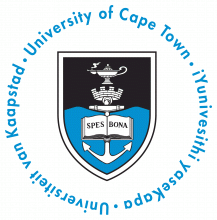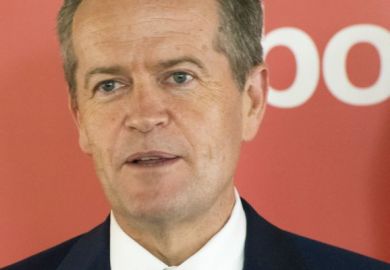The recent report into governance failures at the University of Cape Town under Mamokgethi Phakeng makes uncomfortable reading for anyone concerned about the future of Africa’s most highly ranked higher education institution.
The report, work on which was led by retired judge Lex Mpati, said that Professor Phakeng, who was vice-chancellor of UCT from July 2018 to February this year, used “threats, intimidation, ethnic slurs, personal insults” to “belittle and humiliate” colleagues, and – with chair Babalwa Ngonyama – “mendaciously misled” the university council over the departure of her deputy.
Their subversion of university policies to “shield themselves from accountability” could have had a “calamitous” impact, the report concluded.
Few readers would perhaps have found the report as troubling as Max Price, who, as a calmly spoken doctor, could not cut a character more different from that of his successor as UCT leader.
Speaking to Times Higher Education, Professor Price recalled supporting Professor Phakeng’s appointment as his deputy vice-chancellor in 2016, having asked the then vice-principal of research and innovation at the University of South Africa to apply for the position on the strength of her candidacy, “at least on paper”.
The state of South African higher education at the time was, perhaps, a key factor. The 2015 Rhodes Must Fall protests were originally directed against the statue of Cecil Rhodes on UCT’s campus, but morphed into a wider movement to decolonise the sector and end the marginalisation of black students. They were followed little more than a year later by violent demonstrations against tuition fee increases, which became the Fees Must Fall movement.
“The imperative of changing the institutional culture was uppermost in the university’s mind, so I thought that a black candidate would be appropriate to continue that trajectory. I think [the protests] had some role to play, definitely,” Professor Price said of Professor Phakeng’s arrival at UCT.
When, two years later, Professor Price stepped down after a decade in charge, Professor Phakeng seemed to embody the transformation that many hoped to see across African higher education.
But – as noted by the Mpati report – Professor Price advised against the appointment, having worked with Professor Phakeng.
“It wasn’t because she was black or female. It was just because I observed her interactions with colleagues, and I didn’t think that as a team player she was building and winning support,” he said.
It was, Professor Price acknowledged, “a poor appointment” and, having read the Mpati report, he was not surprised by the findings – which are described by his successor as “inaccurate”.
“Those were the reasons [against Professor Phakeng’s appointment] – [she] was being really tough on colleagues, who often left meetings with her in tears, hypersensitive to criticism and not able to accept that criticism was coming from a good place, assuming it was coming to somehow discredit her,” Professor Price said. “Those sorts of issues came up repeatedly.” The Mpati panel reported there had been “multiple allegations of bullying” against Professor Phakeng during her tenure as vice-chancellor and the report concluded that a new culture was needed “of respectful dialogue, empathy, fairness and equity”.
Nevertheless, Professor Price suggested that anyone who followed in his footsteps would have faced significant challenges, describing the UCT vice-chancellorship as a “poisoned chalice”.
In his new book, Statues and Storms: Leading Through Change, Professor Price reflects on how the tumults seen during his term of office stemmed from decades of the alienation of black students, and on his experience as a key target of the protests. He was punched during one stand-off with protesters, while his office was firebombed.
Professor Price, now a scholar in residence at the Oxford-based Atlantic Institute, described how he planned an emergency escape route from his home, kept spare clothing at a friend’s house and stored all his family’s most important photo albums and memorabilia off-site.
Years later, Professor Price likened his experience to that of soldiers during a war, who are able to compartmentalise their situation, and said that rewatching video clips from the period felt like “watching them for the first time”.
“I always felt that I had a very thick skin, and the positive side of that is that you don’t take things personally…and do what has to be done,” he said.
Leading UCT, he said, had often put him in a “Catch-22 situation”, trying to appease at the same time angry student protesters and academics who thought he had conceded too much ground.
But he said his biggest worry was that the Fees Must Fall violence might have prevented end-of-year exams being completed, causing students not to graduate, UCT being unable to welcome first-year students and the university facing a catastrophic financial crisis as a result.
“That prospect of not finishing the academic year was the most serious and challenging, which is why I thought we had to go to all lengths possible to negotiate with whoever had the power to reduce the disruptions and to make some compromises,” he said.
Professor Price said that he regretted how racially polarised UCT’s campus had become at this time, something he said had created a “chilling effect on debate”.
Nevertheless, Professor Price acknowledged that the debates that dominated the end of his vice-chancellorship had led to significant improvements in the experience of black students in South Africa, particularly in relation to funding.
“Black students on historically white campuses feel very different from how they did 10 years ago, and that’s a good thing. That’s a permanent legacy of some of those protests,” Professor Price said.
Register to continue
Why register?
- Registration is free and only takes a moment
- Once registered, you can read 3 articles a month
- Sign up for our newsletter
Subscribe
Or subscribe for unlimited access to:
- Unlimited access to news, views, insights & reviews
- Digital editions
- Digital access to THE’s university and college rankings analysis
Already registered or a current subscriber? Login









